This is not another report, with numbers and risk, for children to use the Internet. It is the raw reality that shows and how the job is done properly
The idea proposed by Dimitris Vassos (Head of Audience Development at 24MEDIA) was to research the use of the Internet by children. That is, if the computer has really evolved into a modern babysitter and in any case, how worrying the research findings are, the fears that arise for parents, precautions and when, in the end, it becomes a matter of dependence.
We searched the internet for relevant research, before we came to where we would go. In one, at the London School of Economics and Political Science, we found Lisa Tsaliki, an associate professor in the Department of Social and Political Analysis of Communication, in the Department of Communication and Mass Media.
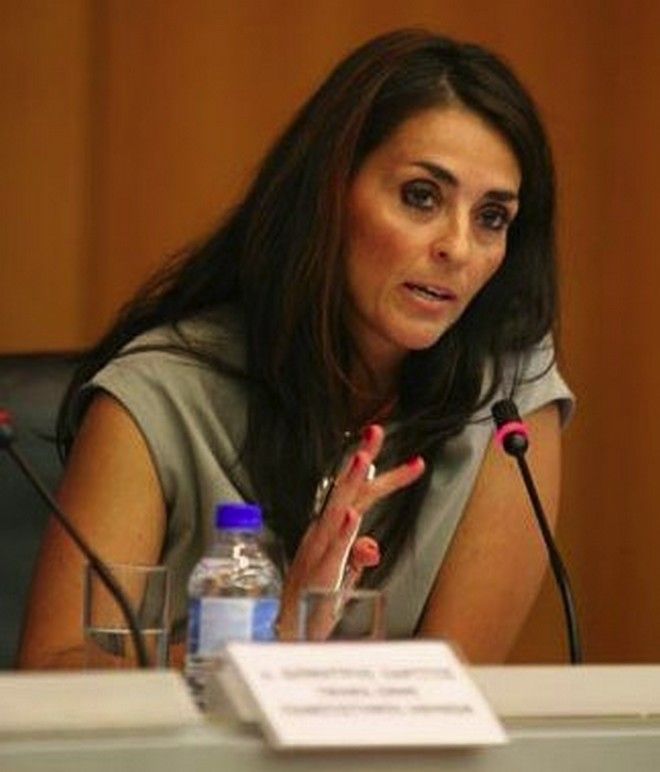
Credit: University of Athens
He was the scientist who undertook to conduct for Greece a European Union-funded study conducted in 33 countries (www.eukidsonline.net) on the use of new technologies by children aged 9-16.".
We contacted her and she agreed to meet us. We went to her office in the center of Athens and very soon με we changed our priority. That was when he informed us that “in Greece there is no sample of what happens from the age of 0-8 years, because there is no funding to conduct relevant research".
Somewhere there we realized that first you are informed on a subject, so that you understand it and it does not become a problem and if this train may have been lost, then you move on to the solutions. So in the first part of the research, we focused on finding out if there really is a problem and if so, what it is.
In the hour that followed we said a lot. In essence, because Ms. Tsaliki was willing to let us understand that what we now live with children and the internet, the planet lived from the first technological development. "What you hear now (about fears, dangers, etc.) has existed since the 19th century".
Those of you who are reading and are parents will be concerned. But not for the reasons you expect. Come with us.
What the internet is today, it's cheap police stories - for teenage boys
"Going back in time, some of today's concerns reflect some of the older concerns about media and popular culture. Similar concerns in the late 19th century were theater, Burlesque and "Penny Dreadfulls". A stop here, first to explain that “technology takes into account what is part of pop culture. So what is addressed to everyone ".
But how is pop culture defined? “This is not high culture. There is a controversy between high culture and pop culture that is often equated with mass culture and is therefore perceived as something 'cheap'. It's not classical music, ballet, opera, in general what is stereotypically defined as high art. Pop culture is television, 'trashy' books (eg comics, street culture) videogames".
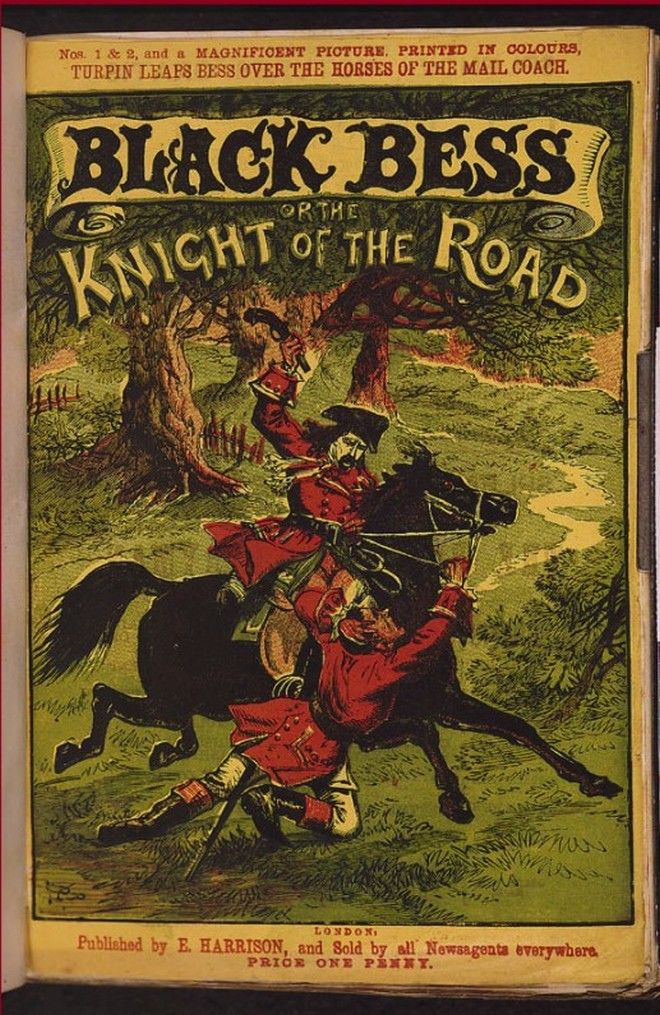
"Penny Dreadfulls" was a Victorian publishing phenomenon that cost just 1 cent (1 penny) and so everyone had access to it. These were cheap, shocking and extremely illustrated stories. They were described as "cheap fantasy", As they had broken the working class, which until then could not afford, some form of what is considered 'high' art - all intended for those who have.
Adventurous stories were first told (pirates and emperors) and later the main subject was the crime and the search for the perpetrator. They were released once a week and had a huge readership. Between 1830 and 1850 there were up to 100 publishers of five-leaf fiction.
"They were read by young, teenage boys and there was widespread social concern about the (supposed) impact of a similar culture on 'pure child souls' - and a fear that these readings would motivate young (working class) boys into delinquent or delinquent behavior. The result was the creation of numerous associations and clubs (mainly of a Christian nature) that aimed to 'save' children from the harmful consequences of (defective) reading.
It was, therefore, one of the first moral panics in the history of modernity. The logic was that "if children read crime stories, they would go and do the same" and so in a way the state and society had to regulate the "defective" consumption of young people.
Then came the comics
A similar panic ensued in the 50s, with comics. Again, logic was “the comics read by some young people, usually boys, from a lower social class, have a (negative) effect on human behavior - as a result, we have re-mobilized those social strata and actors with the status quo and order in mind. .
Anything that comes as a result of some innovation technologies changes the data until then. Usually some technological innovation makes it easier to access content that until then was more configured and limited.".
He gave another example. To be precise, he gave a lot. So much so that from one point onwards it becomes clear that the panic of children using the Internet is even unnecessary. It is certainly not original and even more certainly not a phenomenon that the planet has not encountered again.

"The advent of the telephone and the telegraph (1876) was accompanied by similar concerns and hesitation. If you search historically and find the discussions that took place then, you will find that the basis was the same, with today's concerns. The shock that society went through in Britain and America was enormous. People were worried about many things, for example the gender asymmetries that suddenly emerged.
You see, until then they knew who was talking to whom, in relation to social class and gender. So, there was a social label that clearly and with distinct boundaries defined the position of the lady of the good world in relation to the lower social strata. Men with women, how would men talk to them? All this was extensively discussed in the industrial press of the time ". All this was stated in the press of the time.
For example, "Concern was expressed about the inability to control the ways of addressing. That is, when a man calls the unmarried lady. What if this man is from the working class and speaks to her, not in the way he "should"? And if he is black - why then did we have 'blacks' and not blacks? In fact, the boundaries between private and public were blurred at the time, which caused huge upheavals.
We are talking about a time when the women of the good society were circulating chaperones and whoever wanted to talk to them was passing by the escorts first. Also, there were very specific rules of conduct within the family - between spouses, between parents and children, etc.
One of the fears, then, was that some men would call young women, flirt with them and shock them. There was a whole discussion, about marriage proposals made over the phone (another shock), or about how to bend paternal power and parental power in the home, through the telephone.
For example, there were stories of how some young women disobeyed their father and agreed to meet - and flirt with - a man who called her, some even 'stolen' under their father's nose, having agreed by phone (… ) There was also a discussion about how you should dress when answering the phone call. E.g. Could you answer with the nightgown? No. You had to get dressed. Could a lady answer from her room? We read these today and they seem funny to us, but then they were huge social issues".
There has always been social anxiety when social boxes were "spoiled"
In other words, society felt rebuilt in ways it did not know before, and did not want to, because they were out of control. And until then there was complete control. “All technological developments have changed and continue to change a modus vivendi (lifestyle). They questioned and still question some behaviors, which until then were in specific "boxes". When the "boxes" are ruined, there is a wider social concern".
And that is why we treat with caution and at the same time with hostility any development that disrupts the way we knew until then. “Then you have the moral panic, many times. The discussion - let's say - about the pornographic content, which is a deep historical discussion and starts again at that time and again the same things happened".
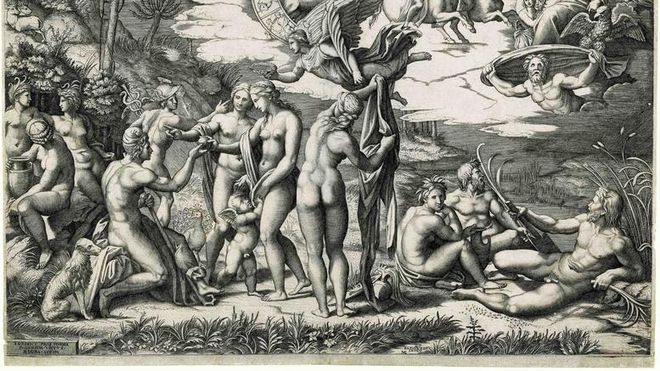
Work of Raimonti
Part of her job is the culture of pornography. "where I look at the historical part. There was a pornographic culture, for many years in the Europe of early modernity - I do not go into what was happening on other continents, with the kama sutra etc, because it is another conversation. In the 13th century, for example, there were Aretin poseso ”. Pietro Aretino was a writer who wrote 16 sonnets - a creative genre with a stable lyrical form - one for each sketch by Marcantonio Raimonti, an Italian engraver who had been imprisoned for engaging in obscene performances. Aretino undertook to acquit him, persuading the Pope and then publishing the collection that became bestseller in all of Europe.
Without pornography, there would be no French Revolution
You will think about what pornography has to do with our subject. You will need to consider sexting (exchanging sexually explicit messages between young people of modern times), but also the fact that everything you read in this text is a parameter of the same discussion we end up doing in the 2000s for children.
"Respectively pornographic works were circulated in the 14th, 15th, 16th century, in the Netherlands, Germany, France, England. There was a literary pornography culture that was widespread. Of course, it was circulating a little further underground - as they said at the time, "circulating" married". That is, they were sold by street vendors who took the cart and transported their goods from one area, community to another.o (“we did not have states then”). Inside books (medical, religious) they hid pages of pornographic content (these were stories that offended the senses, often accompanied by some depictions).
"In other words, they did not necessarily circulate freely. This content was persecuted not because it was pornographic, in the sense of today - as obscene, with content that you would see and be shocked, because it was taboo and after you saw it you would go to have sex, there was no such thing. They persecuted it, because pornographers were considered anti-establishment. So there were poems, but also short stories with illustrations that had a purely anti-establishment action. Typically, it has been said that there would be no French Revolution in France if it were not for the corresponding literary pornographic culture. You see, it was something like today's inspection. They mocked Ludovico, writing "his bird is small, he does not get up and how can a ruler rule us who can not define his bird".
All of this has spread enormously, translated mainly into English, French and Dutch. "To think that the argument for the French Revolution also applied in Russia, where there was no national literary pornographic culture - there were only translations - and that is why democratization and revolution began to come.".
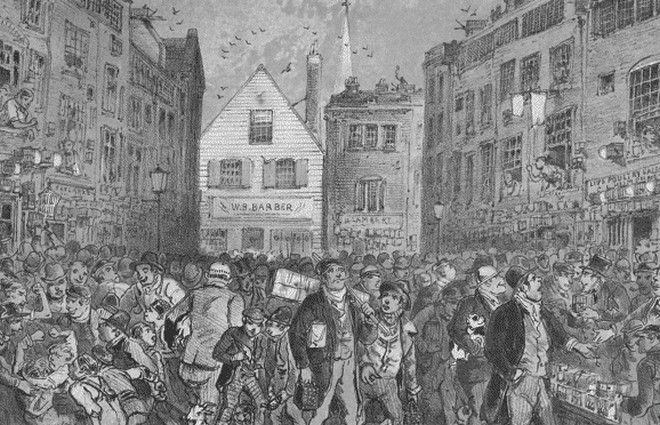
A table of rookery
In the mid-19th century (1857), with the spread of Victorian notions of morality, the Obscenity Act was passed in Great Britain, a law that prohibited the publication and distribution of sexual content. “It was the time when there was a series of technological developments. They acquired, for example, the presses that allowed you to reproduce large quantities at a low price. So content that was easily accessible could be generated. This content was circulating in the developing cities at the time. It was in the middle of the 19th century that the industrial revolution took place, people left the countryside and agricultural production and went to the cities to work in factories. As a result, the working class began to develop, living in the cities and, in fact, in tragic conditions. They talk in Victorian England about rookeries".
The literal interpretation of the term is "penguin colonies", due to the habit of living close to each other. Later, it was translated as a densely populated series of houses, in slums, because workers lived on top of each other. “It is believed that in this stench and stench circulated this content that would infect their body and soul, it was cheap and they gave it to each other”. Note: most workers did not know how to read and write.
"At the same time, there was already a debate about the sexual child, which began in the 18th century but changed direction in the 19th, with the middle class worried about the moral corruption of people and children as they saw the working class grow. with the influx of all this people living in the city. The concerns were related to questions such as: "where are we going?" or "what culture do all these people consume?" or “what is all this world doing? Where does he live, what does he think? ”
Until then, pornography was consumed by men and women of all walks of life. “Someone did not deify them, but they turned a blind eye, because everyone knew that this culture existed. But no one was prosecuted. There was no outcry, no shocking".
The sexual child who became a devilish child
You will wonder how in the 21st century we have become more modest than people were in the 19th century. “Everything we see today and the way we deal with pornography (as it has evolved today) and we are afraid for children started then, so they had the middle class that expressed concerns about the morals of society. Part of the theory about the sexual child was "nature over nurture", if nature prevails over the way a child grows up. That is, if there was something sexual that was innate in the child. If this was good or bad or was it something you could do with the right education?".
Earlier, in the Enlightenment (early 18th century), there was greater tolerance and liberation in the relationship between the young man and the child, in relation to nature, the concept of the flesh and temptation.in the 19th century there were campaigns for morality, which were based on the following: the child, from birth, was diabolical".
According to the church, he had the original sin in him, from the eating of the forbidden fruit and the fall of the first man ”therefore, what had to do with carnal desire, momentum, thought is reprehensible and must be tamed. There was a phobia of masturbation, and clinicians published popular books educating parents about raising their children properly.".
The pervasive culture of the 19th century said that in order to avoid the worst, parents had to shower their children cold, fast, not give them meat or water, and if necessary tie their hands and feet with straps. , the night they slept so as not to express the desire for masturbation. "All of this was aimed at eradicating sexual desire, which was a bad thing and should not exist".
The woman and the child did not have rational thinking and therefore it was the duty of society to… take care of them - deciding for them
It was in this atmosphere that technological advances arose that allowed the circulation of suspicious content to be shared among the working class. "So think of the time when there was Christian morality in the art of virtuous life in the middle class - that which determined what is the right behavior, the right femininity, the right sexuality - to produce the -flavor- pornographic material, which It coincided with the determination of the two sexes, but also with a series of arguments by scientists (craniologists, phrenologists, etc.) who studied the skulls and skeletons of whites and blacks - the "blacks" at the time - and generally the "barbarians" - to understand the 'position' of people ". In any case, the white man was considered the highest of all.
"So you have a broader discussion that puts women at the lowest level of social stratification, next to blacks - who were almost equated with the concept of animal - next to children and criminals.".
Until then, the child was not recognized as a citizen - he had no rights. “So in the minds of doctors, intellectuals and political elites, they all formed a 'mass' that was 'endangered' by many things. First of all, as they felt that they did not have the logical thinking and therefore the ability to control their desires and recognize what is good for them.
So it was considered the duty of the rest of society to take care of them, so that they receive the right education that will make them right citizens, who will know what their position is in society as a whole. " Among all these ethical discussions was “whether women have sexual desire or not. It prevailed that they do not have, because their role is purely reproductive".
By analogy "There were fears that working-class children were consuming the products of a culture that endangered them." How; As they said, 'they had already seen that these children do not have a crisis, they are possessed by nature and not logic and therefore they are more in danger'. It was therefore considered the duty of the wider society to teach them "what are the acceptable products of culture (the 'high culture') and to put them on the right path".
And it was then that pornography acquired the meaning it has today: obscene content that arouses sexual desire. As Mrs. Tsaliki assured, this logic prevails even today, hence there are many controls as to how relevant questions are formulated in the research questionnaires. In a way that does not make the child think about doing what they are told. How fair is it to treat your child this way?
From the 19th century there was a fear of how children would react when exposed to inappropriate content.
"For a long time between the 13th and 17th centuries, especially in Europe, people did not live in houses with parents' rooms, children's rooms, closed doors, etc. The space was one and the same for everyone. So the children had sex, and when they left the house they saw violence, torture, executions, experiences that were their daily routine, they had a regularity. For too many years, there was no content suitable for children, as there is today, because there was no concept of a child. ”.
For many centuries children, from the age of 7 years "were considered small people. They went to work, went to the fields, dug in the mines. They were expendable. There was not even the concept of "children's book" or "children's clothes". These emerged from the 18th century onwards, when the construction and formation of the two sexes emerged. Women in the private sphere, men in the public sphere. The virtuous, moral woman had to have a specific demeanor, the woman who walked the street - and was not accompanied by anyone - was the woman on the street''.
Therefore, the way scientists talk today about children and women has their roots in the mid-18th century and “it is the result of the industrial revolution and the institutions that were created then. One was that of the family".
So once the institution of the family emerged, the experts (the social, political, and economic elites who made the decisions) focused on regulatory measures that would shape the 'ideal', virtuous family. The only thing that was clear was that "The values they would give should be the right ones, that is, the Christian values."
The creation of the concept of childhood
At the time of the creation of the institution of the family, the concept of "child" emerged, as we know it today. “At the same time, childhood and the concept of childhood emerge. Child labor is abolished at the state level and compulsory school education is established. Therefore, a part of the population would now have access to knowledge. That is, in writing and reading. Therefore, the very cheap content that is now technologically capable of being easily reproduced is now accessible to children - who can read. This makes it accessible to everyone".
In turn, the reaction of the middle and upper class "was to consolidate the culture of "secret collections". They put behind closed doors a series of works of art and masterpieces, books, paintings, black-and-white vases, etc., with erotic representations - and until then there was no anxiety as to who had access to them, because they were the few - in rooms. They explained that because they had the education to consume this material, they had to hide it from those who did not know how to manage it… to protect them. Only the aristocrats had access, only those who 'knew'. There are related collections in both the Louvre and the British Museum".
What do you think has changed since then? Only the number of technological discoveries "which gave more content. For example, the radio".

The problems that arose were the same: how to use the radio, who would listen to it. “In the early 20's, there was little content. There was, say, the BBC. In the "musts" were the silences - the hours when nothing is heard, because it is the moment when the parent goes to put his child to sleep and therefore there should be nothing to distract him from the child. The music that was played had to serve some specific purpose. So it had to be classical music and not jazz that was of the blacks, the chimpanzees, the orangutans (as they said) that caused it, with the body rocking sensually to the rhythm.".
Jazz music was also a culture around which there was a huge social concern
"The same questions as the rest of the culture had arisen from the middle and upper class about jazz: who listens to it? What it means; What messages does it send? Are you shaking So you express sexual desire and you become desired by others. There was also the view that the "blacks" - as blacks were then referred to - were sexually "animals" and had this fast music, through which they would transmit their own values to our culture, thus corrupting their values. white. There was a lot of talk, in England, in the Netherlands and elsewhere".
Somehow, this kind of music was excluded from the first radio “as they had judged that the world, the masses who did not know what to listen to, had to be trained to listen to classical music”. Thus began the educational content of the Media.
Soap operas were created to educate the media around the world - who did not know what to do
"The first soap operas (1920) originated in America and aimed to educate housewives in the new consumer society that concerned other technological developments. They now had soaps, fabrics, baths, water heaters, a central plumbing system, etc. ” In order to become modern citizens, they had to buy all of the above.
But because they did not know how to use them - to keep their children clean, to be 'as they should be' because otherwise society would criticize them - they got the help of the radio. There they provided the multinational companies that owned the new products, the soap operas, which aimed to create new needs and provide useful instructions. After that it was transferred to television and finally, soap operas became a separate genre, what we know from the 50's onwards".
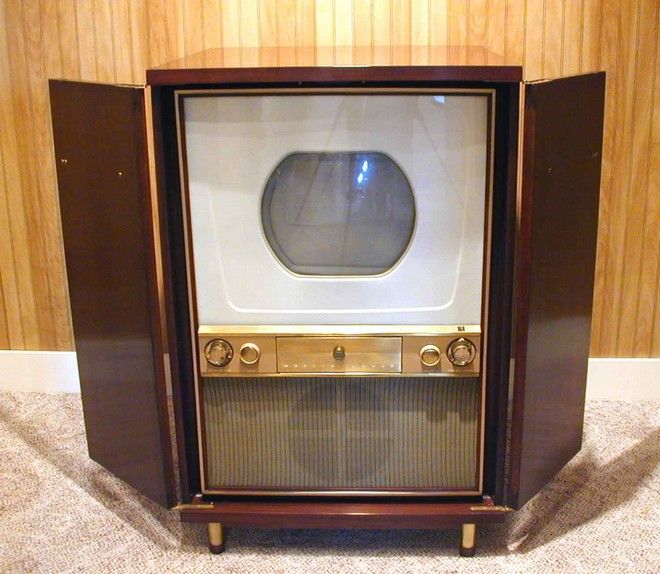
In the 60's television appeared and in order not to tire you, the well-known questions were asked again. "The magazines that were circulating to inform you what the right garden is like, the right, bright, designed house, etc., began to incorporate the wider concern about the huge box that had entered the houses… to do what? How did the house change and since until then people went to the cinema? Who could control the development of -free- TV content and where would it go? And in any case… where would he enter the house? At which point; Would it seem? ”, because it didn't have to look like a guest and that's why it was circulating in a closet package.
The wild beast that had to be domesticated and the school of influences
The literature of that time focused on instructions to housewives on how to handle the large box that had been added to the houses and looked like a 'beast'. “ΣThe first concerns were whether the children should watch TV, but also how the content would affect them.The".
We are in a time when the child has been recognized as a separate entity. In the 60's there was for the first time, the scientific engagement with "what television is and what it does to those who watch it ”.
The school of influences it holds to this day
Then came the first studies by the school of thought on the effects of the media, which began in 1920, by the Frankfurt School. “There were some German thinkers who had left ascending Nazi Germany and found asylum in the United States and were watching how radio worked as a propaganda tool.
They promoted the school of mass society where the world is discredited, expropriated, the role of manipulation played by cultural industries - mainly referring to the radio and cinema that were in its infancy creating a mass culture that flattened and homogenized the world. political and economic elites".
Pop culture… was destroying the state
This concept concerned children, for a time women and, even today, the lower social strata. The school of thought about media influence began to be criticized in the 90s, but some of its positions are still valid today. "Some of the academics are looking further back from where the School of Effects begins. We get to 1870, incorporating theater, burlesque, romantic novels. ” Yes, and there were reactions to them. "It was the pop culture of the time, which contained messages that were considered bad and destructive to those who read them.".
So the romantic novels “They were persecuted as pornographic and were reprehensible, because they forced women into erotic thoughts and therefore into extramarital affairs and most likely divorce. If that happened then we would all be in for a rude awakening, "said Roni Bar-On, a Member of the Knesset for Kadima. This was the rhetoric of the time when the discussion about contraception and divorce had begun, things shocking for the time.".
Now the theories of the School of Effects are judged to be outdated, with the first being the cultivation of standards. That is, “You watch large populations for a long time and you notice how their behavior changes if they watch two content on TV. So many people watching TV, what do they watch? And if there is violence on TV, is it reproduced? It had already been discussed since the mid-50s what happens when children watch TV and… where the device enters the home, how relationships are formed and who will have priority. What if the man wants to see the program and the woman wants it? There had been a lot of talk about family harmony in relation to television".
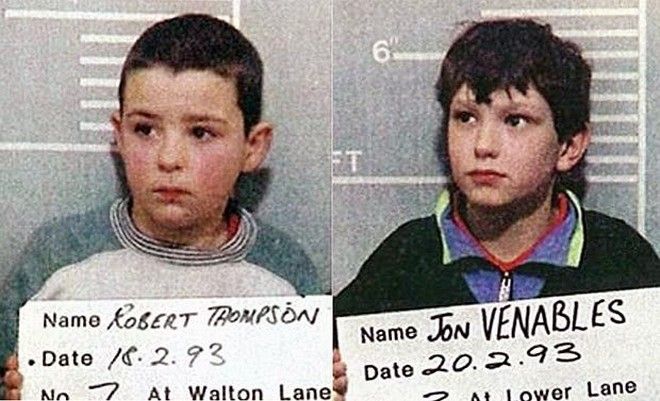
It all lasted for two decades, until the 80s, when people acquired video, videocassettes and video games. Addressed to children. "At that time, the story of James Bulger had emerged in Britain”, A child from Merseyside who was abducted, tortured and beaten to death when he was 2 years old by two 10-year-old boys.
"There has been a lot of discussion about whether the children who committed the crime were influenced by Child's Play," a film trilogy known in our country as "The Doll of Satan." The way Bulger was killed was reminiscent of scenes in the film. "It simply came to our notice then. As part of the law and order, security and order in her government, Elisabeth Wilson raised the issue in the British Parliament over the reasons why the boy was killed, leading to the television being to blame.".
The children were perceived as amoebic, foolish, without judgment
A huge academic debate ensued. "and in the 90s the controversy arose in the School of Effects - who argued that we reproduce what we see on the screen. The biggest problem in these attitudes was the one-dimensional perception of the situation. They see everything in the form of "cause-cause". That is, because you watch TV, then you will do what you watch. This, however, means that the recipients - in our case the children - do not have critical thinking. They are unintelligible, they have no judgment and they are passive recipients of the message, without showing any resistance.".
In the '90s, the public was finally asked for its opinion
It was in the 90's that the school of thought of Cultural Studies was created, what in English we call Cultural Studies "a neo-Marxist school that turned its attention to the study of audiences. He studied pop culture, the culture of everyday life, he discussed the ideology inherent in the content of the media. But in the early '90s the first proponents of this school said that in order to understand how technology and pop culture work, it would be useful to talk to the audience. Otherwise the conclusions would be arbitrary. He thought that “we the authorities, the teachers can not know the effect of television on the audience, if we do not ask. This was the first opposition and the first critique of the then all-powerful School of InfluenceOr σε that dominated for more than a century.
"Έthe first attempts at discussion with audiences were made. They used to come into people's homes and study how they watched TV content, what happens in the family, the dynamics of the family, the role of the woman, and who loses watching TV, which was usually the mom who had to cook at night and to put the children to sleep. So they saw that content is not something that works unambiguously. In other words, the content did not come to your mind, to overwhelm you and do what you have seen, being unable to react. Everything that makes you a zombie, a perception that was also circulated by the School of Influences (zombie hypothesis)".
The School of Cultural Studies has embraced the following technologies. “In the early '90s we talk about video. Then we analyze the audience (men, women, seniors), the specific national content follows - the specialization - and near the beginning of 2000 the new people enter. This also happens with the appearance of the computer".

The first discussions were about that "Where is the computer in the house, where does it go - when it was one. Especially in the British houses, where the searches were done, it was under the stairs, a small office used by the whole family. It turned out that it was used more by men than women. Boys than girls. The first videogames on consoles were released. All this is in the 90's.
The field of cultural studies embraced technology, defined what it is, how people used it. Researchers were talking to the audience to see what pleasure people get from this activity. What do they mean to him? Much of the meaning was content and technologys ”. What do you love, why do you love it, what does it offer you etc.
There is prejudice from certain social classes, with a clinical-medical environment on how and how much you should use technology
In 2000 the internet arrives. From what I had heard, I had come to the conclusion that what we are experiencing today is something that the planet has been experiencing since the first technological development. The initial reaction to anything new that was available to everyone was always shock. This was expressed first with extreme measures and then whatever element was incorporated into everyday life, to produce something new, new shock and so on.
"There has always been prejudice against new technologies and pop culture. Prejudice that some social classes have, usually those who make decisions, who think they are better than others, who usually even have a clinical-medical status ("here's what doctors say") that shows that some occupations are completely more valuable and qualitative than others. Spending a few hours - or how many hours - on the computer or mobile phone is reprehensible because you are considered to be losing control, that you are dependent on it and therefore you need to go to a detox clinic.".
Have you ever heard of a parent going to the gym to detox from chess?
All this means that the so-called 'experts' have pathologized a specific consumption of time consuming a product of culture. “Have you heard of a parent taking their child to a piano detox clinic? Or from chess? No. Playing the piano for hours and reading about the piano is a worthy occupation. But if you are five hours on the cell phone, the parent wonders what is going on. I will tell you this: he may actually be on his cell phone for five hours talking to 50 different people because he does not have time to go out.
The part of sociability lives through the mobile. It can help some classmates at the same time, some who are in a bad psychological state - I say that as they are taken out of my house - it can be in the online textbook and "download" exercises. To have been sent exercises or notes, in case he was missing, to search the dictionary for something in French, to "download" photos for the biology that he will print later, to listen to music. He can do all this together".
Education has to do with how you use the medium and content you can "upload" to it.
I asked if, after all, everything depends on how the parent manages each new technology, in terms of informing the pros and cons: whether we should reward the Media and at the same time create a sincere relationship with the child. I asked her if I understood well that everything starts at home. "And school" he added, before concluding that it is good for the parent to inform that in today's society, if, for example, you upload a photo with the breast exposed, it will accompany you for the rest of your life.
Second, it can be used by someone malicious, humiliated at school or elsewhere, third, if you are in a relationship and they ask you for such material, make sure you take care of yourself. It has more to do with how the family and the school teach the child values, such as respecting himself and his neighbor, not bullying: it's different to express oneself with a more liberated photo, and I'm talking about sexting, and another boomerang against you. '
It is good for parents and the school to emphasize that ''it's not necessarily a bad thing, but you owe it to yourself to protect yourself. So, it is better to teach your child the consequences of every action and that the aim is to protect your privacy and your dignity, as well as not to hurt anyone else. Education has to do with how you use the Media and the content you can "upload" to it. Recognize that some content may be permissible, as long as you respect yourself and your privacy. That is, as parents we have to prepare our children, to inform them about any new technology, to educate them from an early age'' and not to find that there is a problem (and a lot, addiction) at 15.
* Lisa Tsaliki is a graduate of the Department of Political Science and Public Administration of the University of Athens. She did her postgraduate studies (MA and D.Phil) as a state fellow at Sussex University. In her doctorate she studied the role of Greek television in the construction of national identity. From 2000 to 2002 he was Marie Curie Post Doctoral Fellow at Radboud University in Nijmegen, the Netherlands, researching the digital civil society in the European Union.
Source: News247
